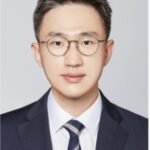A generation adrift in anxiety, a nation grappling with a demographic crisis – is there a connection? In South Korea, a country renowned for its “Miracle on the Han River,” a less visible corrosion of social trust may have profoundly impacted how its people, especially the young, perceive their future, leading to what we might call a “foreshortened future perspective.”
“What’s the point? This life is messed up anyway.” “Thinking about the future just makes me anxious.”
These are not uncommon sentiments heard among South Korea’s younger generation. Despite astounding economic growth that transformed the nation from poverty to a global player, a pervasive sense of unease about what lies ahead seems to grip many. It’s as if the future itself has been stolen. This post explores this “foreshortened future perspective,” arguing it’s deeply intertwined with the erosion of social trust – a trust that, perhaps, was more present in a less affluent past but was gradually sacrificed in the relentless pursuit of economic development.

목차
What is a “Foreshortened Future”? The Heavy Weight of Lost Trust
A “foreshortened future perspective” isn’t simply about expecting a shorter lifespan. It’s a psychological phenomenon where the future one can meaningfully envision, plan for, and feel a sense of control over shrinks dramatically, often to the immediate present. Imagine the future as a distant land you plan to journey to, requiring a sturdy bridge. That bridge is built on social trust: trust in others, trust in societal systems (government, legal, economic), and a fundamental belief in the predictability of the world – that efforts will lead to somewhat expected outcomes.
When this trust collapses, the bridge to the future crumbles.
- The Meaninglessness of Long-Term Commitments: If trust is gone, long-term projects like building a career, forming a family, or even saving for retirement lose their appeal or seem impossibly risky. Why invest in a future you can’t believe in or predict?
- An Unpredictable World: Experiences of deep betrayal, or the persistent observation that societal rules are unfair or don’t apply equally (a loss of institutional or social trust), can shatter one’s faith in a reliable world.
- The Future Veiled in Fog: The future no longer feels like an open road of possibilities but rather a dense, impenetrable fog or a dead end. Long-term planning seems futile, even irrational.
Shadows of the Past: Korea’s Economic “Miracle” and the Cracks in Trust
“We were poorer then, but there was hope.”
This sentiment, often echoed by older Koreans, hints at a past where, despite material scarcity, a stronger sense of community and mutual trust might have prevailed. There was a collective belief that through hard work, a better future was attainable – not just for oneself, but for the nation.
However, the very engine of South Korea’s success – its rapid, “compressed growth” (압축성장, apchuk seongjang) – may have inadvertently sown the seeds of this trust deficit.
- Efficiency Above All: From the 1960s onwards, South Korea achieved its “Miracle on the Han River” (한강의 기적, Hangangui Gijeok) through a state-led, efficiency-driven model. The “ppalli-ppalli” (빨리빨리, hurry-hurry) culture prioritized speed and tangible results, often at the expense of forming long-term social cohesion and trust.
- The Rise of Chaebols and Perceived Inequity: To fuel rapid industrialization, economic power and resources were concentrated in a few large, family-owned conglomerates known as “chaebols” (재벌). While instrumental to growth, this led to issues of opaque corporate governance, cozy government-business ties (“jeonggyeong yuchak,” 정경유착), and a widespread perception that the playing field wasn’t level. This fostered cynicism about fairness and institutional integrity.
- Results Over Process: The relentless push for outcomes often overshadowed the importance of procedural fairness and transparency. A sentiment that “the ends justify the means” could have weakened respect for rules and norms, fostering an environment where “following the rules means losing out.”
- Authoritarian Legacy: Much of this growth occurred under authoritarian regimes where civic participation in policy-making was limited. This top-down approach hindered the development of robust trust between the state and its citizens.
In essence, while the nation raced towards economic prosperity, the foundations of social trust were arguably neglected, if not actively undermined.
Today’s Landscape: The Consequences of a Foreshortened Future
This erosion of trust and the resulting foreshortened future perspective manifest in various contemporary societal phenomena in Korea:
- Short-Termism in Investments, Rise of Speculation: A reluctance to make long-term, productive investments, coupled with a surge in speculative activities (in stocks, cryptocurrency, real estate) aimed at quick gains. This reflects a lack of faith in future stability and returns.
- Myopic Political Discourse: A political landscape often dominated by immediate interests and populist appeals, rather than long-term national vision or intergenerational equity. The crucial question becomes, “What can you do for me now?”
- Present-Focused Lifestyles: The rise of cultures emphasizing immediate gratification, such as “YOLO” (You Only Live Once). While enjoying the present is natural, an extreme focus can indicate a de-prioritization of future planning due to uncertainty. This is also linked to the “N-Po Generation” (N포세대, N-posedae), where “N” signifies the many things (dating, marriage, children, homeownership, dreams) young people feel forced to give up on.
- Critically Low Birth Rate: Perhaps the most alarming consequence. Committing to raising a child is a profound, multi-decade investment. In an environment of high uncertainty, low trust in support systems, and a bleak future outlook, this commitment can feel overwhelmingly risky and unpredictable, contributing significantly to Korea’s world-lowest fertility rate.
A Generational Divide in Outlook
There’s often a stark contrast between the older generations, particularly the baby boomers who directly experienced and contributed to the “Miracle on the Han River,” and younger Koreans today. The former witnessed tangible progress and often harbored a strong belief in a continuously improving future, motivating their sacrifices for their children. Today’s youth, however, navigate a landscape of slower growth, intense competition, high living costs, and a pervasive sense of systemic unfairness, leading to a vastly different, often more pessimistic, “future sense.”
Conclusion: Reclaiming a Hopeful Horizon
The collapse of social trust is more than just a matter of interpersonal relationships; it fundamentally alters a society’s temporal horizon and its capacity for collective action towards a shared future. The challenges South Korea faces today – from economic anxieties to its demographic crisis – are deeply intertwined with this “foreshortened future perspective.”
While Korea’s path of rapid development brought unprecedented prosperity, it also came with unintended social costs. Rebuilding trust – in institutions, in each other, and in the future itself – is an immense task, requiring more than just economic solutions. It demands a societal commitment to fairness, transparency, accountability, and the cultivation of a shared vision for a future that feels worth investing in.
The South Korean experience, while unique in its specifics, may hold broader lessons for other nations navigating the complexities of development, social cohesion, and the enduring human need for a hopeful, predictable future. The quest to reclaim that future is perhaps one ofthe most critical challenges of our time.
Lawyer
With 10 years of dedicated practice as a lawyer in South Korea, I specialize in the intricate legal landscapes of finance and real estate within the Korean legal system.
Kindly be advised that this blog provides general information and should not substitute professional legal counsel for specific legal matters in your jurisdiction. Always consult with a qualified attorney for advice tailored to your individual circumstances.
For any inquiries, please use the submission form available or email me at webmaster@kevinslab.com.
